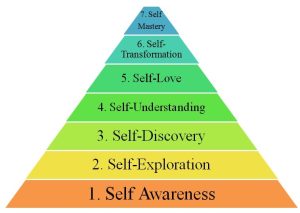 Self-mastery is the ability to control your emotions, thoughts, and behaviors in all situations.
Self-mastery is the ability to control your emotions, thoughts, and behaviors in all situations.
Self-mastery allows you to act deliberately and consistently toward your goals, and involves self-discipline, self-awareness, and the conscious choice to align one’s actions with their values and long-term vision.
Key elements of self-mastery
Self-Discipline: The capacity to do what needs to be done, even when you don’t feel like it.
Self-Awareness: Understanding your thoughts, emotions, and the belief systems that drive your actions.
Emotional Regulation: Managing impulses and reactions, choosing long-term benefits over short-term gratification.
Vision and Purpose: Having a clear sense of direction and motivation for self-improvement.
Continuous Improvement: Viewing self-mastery as an ongoing process of growth and overcoming internal resistance.
Self-Mastery cultivation:
Practice mindfulness to observe thoughts and emotions without judgment.
Accept and understand the resistance to change, using self-compassion rather than criticism.
Set clear, inspiring goals and create daily rituals or habits that support growth.
Being honest with oneself about your strengths, weaknesses, and motivations.
Taking care of one’s physical well-being to support mental and emotional resilience.
Self-mastery is about rigid self-control, understanding oneself, aligning true values, and making conscious choices to become the best self.
Self-mastery is a lifelong commitment to personal growth and integrity.
